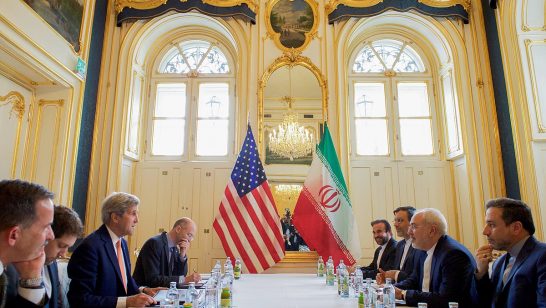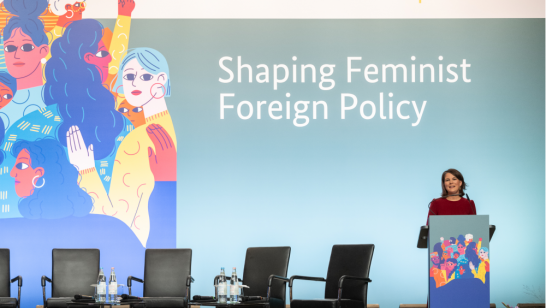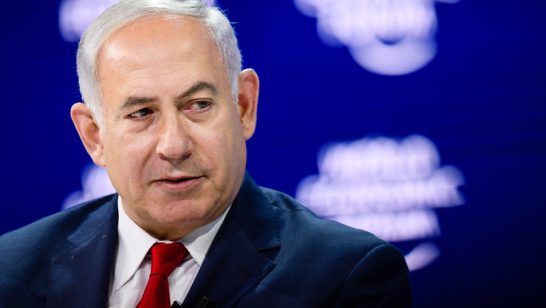
16 September marks the first anniversary of a women-led uprising in Iran after the death of Jina Mahsa Amini in 2022 sparked an unprecedented wave of protests across the country.
In fear of new riots as the anniversary approaches, authorities have started intensifying their crackdown with a series of targeting women´s rights activists, cultural figures, academics, and family members of victims previously killed during the protests.
The feminist uprising not only shook the Islamic Republic but also impacted European policymakers, prompting a noticeable shift in tone vis-à-vis Tehran. But beyond largely symbolic actions through a series of sanctions packages, the EU has struggled to reconcile meaningful support for the Iranian people with effectively managing the plethora of security challenges posed by the Islamic Republic, most notably its rapidly advancing nuclear program and growing military cooperation with Russia.
Despite the rhetoric, we have yet to see a considerable shift in Europe´s overall Iran policy. After a year of pushback by Iranian people, particularly women, it is high time for the EU to respond to Iran´s feminist uprising by implementing feminist principles in its own foreign policy.
Looking through a feminist lens
Feminist foreign policy prioritises peace, gender equality and environmental integrity, actively promotes and protects human rights, and aims to disrupt structural inequalities derived from colonialism, racism, and patriarchy. Notwithstanding the many feminist theories, feminism seeks to be inclusive and intersectional. Moreover, it questions a foreign policy that is mainly state-centred.
...it is high time for the EU to respond to Iran´s feminist uprising by implementing feminist principles in its own foreign policy. Azadeh Zamirirad
If the EU were to follow a feminist approach, a change of perspective would be required, one that no longer focuses on the Iranian state but on Iranian society. A feminist Iran policy could follow these four principles: (1) overcoming the traditional notion of “national security”, (2) integrating marginalised groups in foreign policy decision-making, (3) strengthening social movements and civil society organisations by expanding their capacities, and (4) protecting society from unintended consequences of policies (such as sanctions) that might disproportionally affect the Iranian people and weaken their means of resistance.
Prioritising these principles in European foreign policy would not mean ignoring the Iranian state or its actions. Condemning human rights violations and sanctioning individuals and entities involved in them remains essential. Frequent sanctions packages, while largely symbolic, can serve two important purposes: they continuously spotlight the situation on the ground and send a clear message that human rights will remain on the political agenda, regardless of current or future security agreements. However, if they are not accompanied by meaningful steps to support social actors, they risk turning into little more than a political ritual.
...if sanctions are not accompanied by meaningful steps to support social actors, they risk turning into little more than a political ritual. Azadeh Zamirirad
In practical terms, any European Iran policy should include free technical support to circumvent internet censorship, more consular services to allow for faster ways to leave the country and increased efforts to free political prisoners, including foreign and dual-nationals currently held by Iranian authorities as bargaining chips. However, a decidedly feminist foreign policy would also be keen to strengthen the capacities of social actors, in particular marginalised groups. One of the main obstacles for civil society in Iran and its protest movement is the dire economic condition of the general population. The economic crisis, caused by state corruption and mismanagement and exacerbated by broad US sectoral sanctions, makes it difficult for civil society actors to continue their work or for protestors to organise a national strike. US sanctions in the banking and financial sector have also made it nearly impossible for Iranians to receive financial support from their families abroad. With millions of Iranians living in the diaspora, remittances could have a valuable impact. Yet, the EU has done little to provide reliable channels through state banks that would not be easily targeted by US secondary sanctions.
Another staple of any feminist approach is the active involvement of marginalised groups in policy-making. There is a need for a structural dialogue with the professional human and women’s rights community in the Iranian diaspora, including the voices of ethnic and religious minorities. While there have been sporadic, often highly publicised, meetings between European policymakers and prominent opposition figures living abroad, many in the diaspora who have worked in the fields of human rights in Iran for decades as professionals, often as lawyers or women´s rights activists, have received far less attention. The vast potential of this community, which draws from well-established networks in Iran, has been largely overlooked, and their input has only been used. The EU would greatly benefit from regular exchanges with this community on the actual needs on the ground, which are very difficult to ascertain otherwise, given the limited access Europeans have to Iranian activists in the country. Such exchanges would also help to better assess the potentially harmful consequences of specific sanctions.
A feminist outlook on security
From a feminist point of view, European support for the Iranian people and the need to maintain the EU´s own security interests are not mutually exclusive. Feminist foreign policy does not pit the need to protect human rights and the need for security arrangements in international relations against each other. Instead, it builds on a broader understanding of security. Here, security is seen as much more than the absence of violence or conflict, encompassing a large variety of issues such as gender equality, economic welfare, or climate change.
Feminist foreign policy favours a diplomatic, multilateral, and generally anti-militaristic approach to international relations. Contrary to the belief that supporting a feminist uprising in Iran would preclude nuclear negotiations or any type of security arrangement with Tehran, feminist policies strongly emphasise the need for non-proliferation and arms control agreements, their significance for international peace, and the right of societies to live a life free from any nuclear threat.
...feminist policies strongly emphasise the need for non-proliferation and arms control agreements, their significance for international peace, and the right of societies to live a life free from any nuclear threat. Azadeh Zamirirad
Thus, European efforts to solve the nuclear crisis remain vital. However, notwithstanding the dangers posed by Iran´s nuclear program and its growing military cooperation with Russia, hard security should not be the sole focal point of political attention in Europe, where the nuclear file, in particular, has overshadowed other political concerns for more than two decades. European decision-makers should take more notice of other relevant security fields, such as environmental or health policy. To that end, the cautious trend to engage in a pattern of reconciliation across the Middle East, including a normalisation agreement between Iran and Saudi Arabia, comes with opportunities. The EU should facilitate intraregional trade and promote environmental cooperation, given the enormous challenges the region faces, including water scarcity and air pollution.
No feminist outlook on foreign policy would be a quick fix for dealing with authoritarian states, nor would it free policymakers from political dilemmas. However, it offers a shift both in perspective and priorities while forcing the EU to review its own processes of foreign policy decision-making regarding inclusivity and representation. The resistance of the Iranian people is far from over, but forming a meaningful opposition within the country will take time. A sustainable Iran policy should place human security at the centre and prioritise empowering social actors. They are the drivers of change. It is now time for European policy to change as well.
The opinions articulated above represent the views of the author(s) and do not necessarily reflect the position of the European Leadership Network or any of its members. The ELN’s aim is to encourage debates that will help develop Europe’s capacity to address the pressing foreign, defence, and security policy challenges of our time.
Image credit: Wikimedia Commons / A1Cafel



